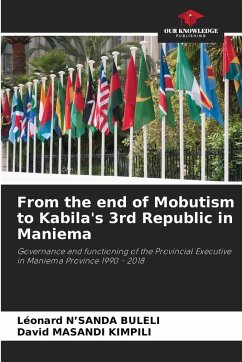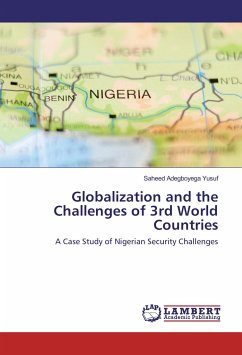
Seeking the political role of the third government branch
A comparative approach to High Courts in Central America
Versandkostenfrei!
Versandfertig in 6-10 Tagen
52,99 €
inkl. MwSt.

PAYBACK Punkte
26 °P sammeln!
Until recently, Courts were not an importantcomponent of political science research on Latin America. The quantity ofresearch on the judiciary does not compare even remotely to the vastliterature on others institutions. However, despite the relativeinattention to their role, courts are institutions whose performance hasconcrete and relevant effects on the socio-political system.Indeed, Courts have currently emerged as active participants in thepolitical process offering new opportunities to citizens, socialmovements, interest groups, and politicians. Focusing on three countries of Central Amer...
Until recently, Courts were not an important
component of political
science research on Latin America. The quantity of
research on the
judiciary does not compare even remotely to the vast
literature on
others institutions. However, despite the relative
inattention to their
role, courts are institutions whose performance has
concrete and
relevant effects on the socio-political system.
Indeed, Courts have
currently emerged as active participants in the
political process
offering new opportunities to citizens, social
movements, interest
groups, and politicians.
Focusing on three countries of Central America (Costa
Rica,
Nicaragua and Guatemala), this book illustrates how
far the political
system in these countries is shaped in significant
ways by the role of
Courts as political institutions. Throughout a
comparative approach,
this study offers what may be the first
cross-national analysis
explicitly designed to serve as a comprehensive
measure of the
political role of High Courts.
component of political
science research on Latin America. The quantity of
research on the
judiciary does not compare even remotely to the vast
literature on
others institutions. However, despite the relative
inattention to their
role, courts are institutions whose performance has
concrete and
relevant effects on the socio-political system.
Indeed, Courts have
currently emerged as active participants in the
political process
offering new opportunities to citizens, social
movements, interest
groups, and politicians.
Focusing on three countries of Central America (Costa
Rica,
Nicaragua and Guatemala), this book illustrates how
far the political
system in these countries is shaped in significant
ways by the role of
Courts as political institutions. Throughout a
comparative approach,
this study offers what may be the first
cross-national analysis
explicitly designed to serve as a comprehensive
measure of the
political role of High Courts.












